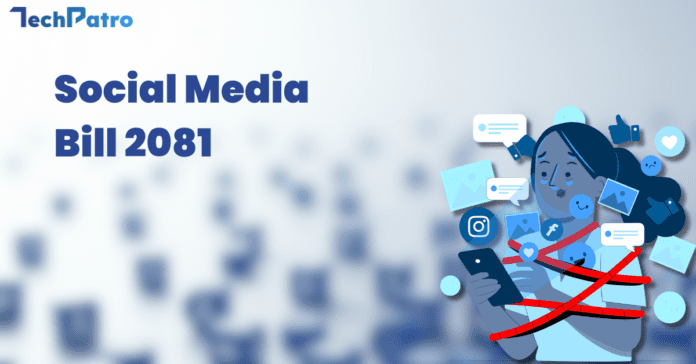The Social Media Bill 2081 seeks to establish control over social media platforms operating in the country, ensuring they comply with local laws, maintain user data security, and prevent misuse.
While the government argues that the bill will foster responsible digital engagement, critics warn that it could lead to censorship and suppression of free speech. This blog explores the bill’s key provisions, potential benefits, and implementation concerns.
Key Provisions of Social Media Bill 2081
The Social Media Bill 2081 introduces new rules and requirements for both platforms and users. Here are some of the most significant provisions:
Licensing Requirement for Social Media Platforms
- Social media companies must obtain government licenses to operate in Nepal.
- The licensing process requires disclosure of data policies, content moderation strategies, and security measures.
- Companies must have a legal representative in Nepal to manage compliance and user grievances.
Content Moderation and User Responsibilities
- Platforms must ensure content does not promote hate speech, misinformation, or criminal activities.
- Users are prohibited from sharing false, defamatory, or offensive content.
- Severe penalties, including fines and imprisonment, are proposed for violations.
Data Privacy and Cybersecurity Measures
- Platforms must adopt strict data protection policies to prevent breaches and unauthorized access.
- Users’ data should not be stored or shared without explicit consent.
- Companies must implement anti-hacking mechanisms to safeguard online interactions.
Government Oversight and Enforcement
- A unique regulatory body will oversee compliance and investigate violations.
- The government has the power to remove or block non-compliant platforms.
- Law enforcement agencies can demand data access for cybercrime investigations.
The Benefits: Enhancing Digital Governance
The bill has been proposed to create a safer and more accountable online environment. Here are some potential benefits:
Protecting Users from Cybercrime
- The regulation aims to prevent online fraud, harassment, and data breaches.
- Users will have clear legal recourse if they are victims of cyberbullying, hacking, or identity theft.
Ensuring Responsible Content Sharing
- The bill seeks to curb fake news, misinformation, and extremist content by enforcing strict moderation.
- This can help maintain social harmony and prevent the spread of false narratives.
Strengthening Data Privacy
- Platforms will be legally obligated to protect user information.
- It reduces the risk of third-party misuse of personal data.
Encouraging Compliance Among Social Media Companies
- Large platforms like Facebook, TikTok, and X(Twitter) must register and follow local laws.
- This will ensure they operate transparently and address user concerns effectively.
The Concerns: Is This a Path to Digital Censorship?
Despite its benefits, the bill has sparked controversy over potential government overreach and restrictions on free speech. Critics argue that:
Licensing Requirements May Lead to Over-Regulation
- Bureaucratic licensing may discourage startups and small businesses from launching social media platforms.
- Foreign platforms may limit their services in Nepal to avoid regulatory hassles.
Freedom of Expression at Risk
- The government’s power to monitor and remove content raises concerns about censorship and political control.
- If misused, the bill could be a tool to silence dissent and restrict media freedom.
User Privacy Concerns
- Granting authorities access to user data for security investigations could lead to mass surveillance.
- There is no clarity on safeguards against misuse of personal information by the government or law enforcement agencies.
Possible Impact on the Digital Economy
- Stricter regulations may reduce digital marketing opportunities.
- Influencers, content creators, and businesses relying on social media may face advertising and audience engagement limitations.
Global Comparisons: Nepal Social Media Bill 2081 vs. Other Countries
Nepal is not the only country that has implemented social media regulations. Similar laws exist in:
- India: The IT Act 2000 and new IT rules require platforms to have compliance officers and user grievance mechanisms.
- Bangladesh: The ICT Act 2006 includes provisions for monitoring and blocking digital content.
- European Union: The Digital Services Act enforces strict penalties for misinformation and privacy violations.
Nepal’s proposed law appears to take a stricter stance, similar to Bangladesh’s model, raising concerns about how it may affect free digital spaces.
Conclusion: Striking a Balance Between Regulation and Freedom
The Social Media Bill 2081 is a double-edged sword. While it aims to protect users, prevent cybercrime, and enhance digital governance, it poses significant risks to freedom of expression and innovation.
For this law to be effective, the Nepal government must ensure transparency and fairness and check against misuse. Intense public consultations, judicial oversight, and clear guidelines on enforcement are crucial to maintaining a balance between safety and digital rights.
Source: Social Media Bill 2081













